My MedTech Life: Chamfr’s Julie Schulte
Part I of II
Welcome to our blog series sharing highlights from conversations with leaders of companies that are helping to shape and drive the medical device industry forward.

In honor of Chamfr’s 5-year anniversary last month, we spoke via videoconference with Julie Schulte, Co-founder and CEO of Chamfr. Chamfr is an online marketplace that gives engineers quick access to thousands of in-stock medical components to accelerate R&D.
With nearly two decades in the medical device industry, Julie has held roles in sales and marketing as well as executive leadership. Before co-founding Chamfr in 2017, she was President of Meraqi Medical (now part of Viant).
In part I of a two-part interview, learn how a chance encounter in a Barnes & Noble bookstore began her journey on the medical device “bus,” why being a woman entrepreneur can feel like kayaking upstream, and how fishing provides an oasis of calm in a challenging balancing act.
You were born and raised in Minnesota. How did Midwestern culture shape you growing up?
I think of Midwest culture as “work hard, play hard.” People are loyal, good natured, and hard working. We love the outdoors because you can’t take it for granted. You have four very different seasons that allow you to have different hobbies, but you need to commit to them when the season arrives or you’ll miss the opportunity. Since it’s dark and cold in the winter, we put in a lot of long hours at work (without guilt). Summer is the time to get outside as much as possible.
What did you want to be when you grew up?
I first wanted to be an actress. Then a psychologist. But I was fascinated by business and organizational behaviors and systems, so applying my interest in psychology to a business setting was natural. My grandpa was an entrepreneur; my dad was a finance executive with an entrepreneurial arrangement. So business was in my DNA. When my friends were reading fiction books, I was reading business books. My sister said, “You obviously love business, because nobody reads business books for fun.” I was very motivated from a young age. I always gave 110% in everything.
How did you get your start in the medical device industry?
I love this story! I was managing a Barnes & Noble bookstore with 80 employees. I had my leadership team read Good to Great, by Jim Collins. A businessman came in to buy 20 copies of the same book for his leadership team. (He was the CFO of a biomedical company.) We had a great conversation about the book’s advice to “get the right people on the bus.” The idea is that if you hire the right people, you can teach them anything they need to know, and the culture would drive success.
Two weeks later he came back, gave me his business card, and said he’d like me to interview with his company. Two months later I quit my bookstore job and took the position of “project specialist.” We had no idea what I would do, but he said, “Just get on the bus and we’ll figure it out.” And we did.
What do you like most about the medical device industry? Why have you chosen to build a career in this space?
It’s so easy to be passionate about it! There’s a lot of innovation in this industry. It’s always changing and evolving, which is awesome. It’s extremely rewarding to contribute to something that helps people and humanity globally. It’s very easy to find purpose and meaning in contributing to innovations in healthcare: making devices better, more affordable, less invasive, or more functional, and being able to positively influence outcomes.
I love how everyone is a critical part of the big picture. No matter what your role is in the concept-to-commercialization continuum, your contribution is critical to ensuring a device gets launched. There’s no role that’s too small in this industry because it’s all necessary for success.
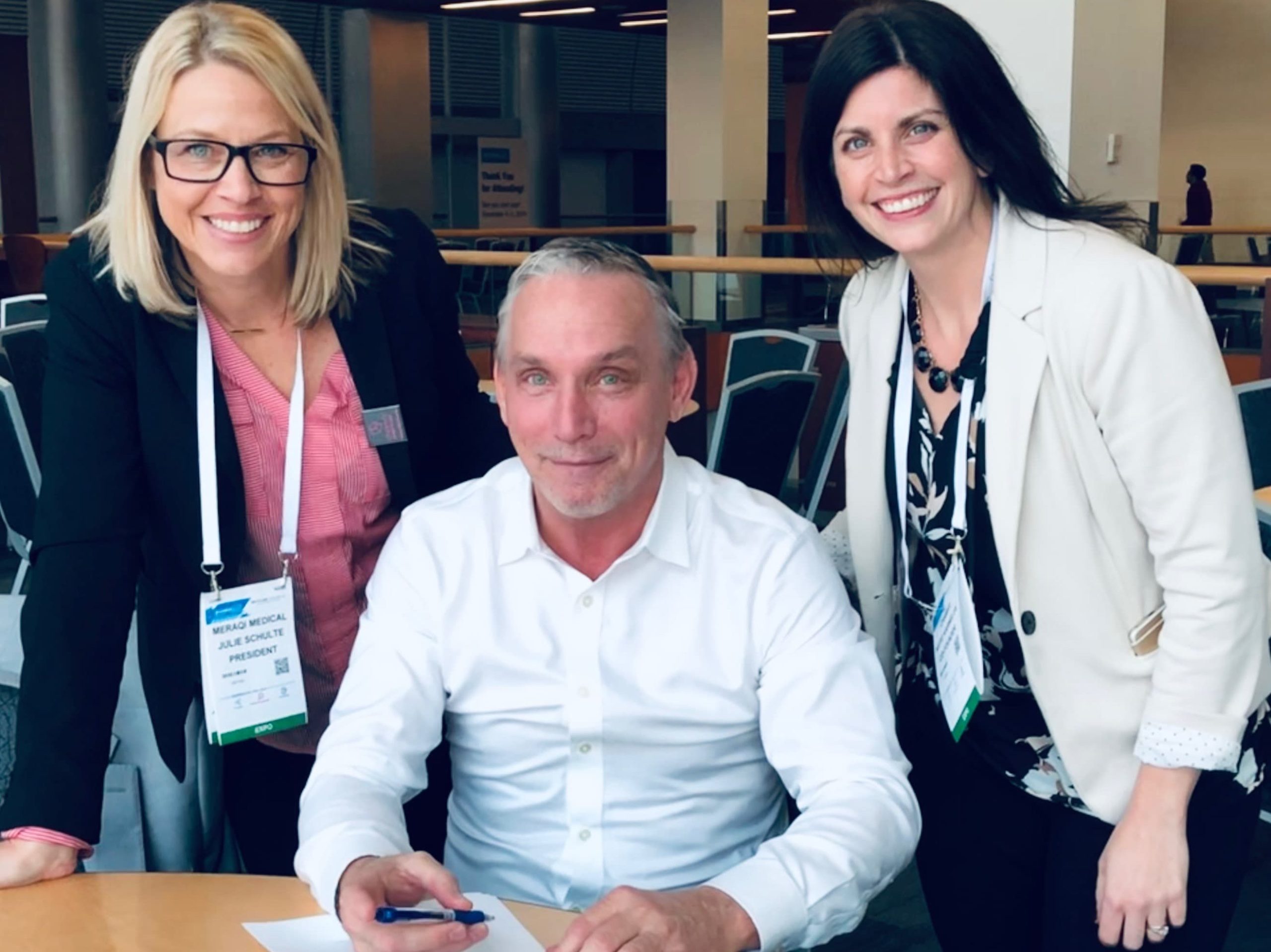
Over nearly 20 years in the industry, you’ve held a range of roles, from sales and marketing to executive leadership. What are some of the key lessons you’ve taken with you from these different roles?
Here are my top three:
- YOU are in charge of your destiny. Don’t wait for others to recognize you, and don’t let other people’s views of your limitations become a reality. You have to develop a tough mindset. You have to go after what you want.
- You’re only as good as the people you develop. No one can do everything. Learning to develop and empower others was the best skill set I’ve developed in my career. It’s extremely rewarding to see people stretch, become more confident, grow into their natural talents, and become the best professionals they can be.
- Don’t be afraid to take risks and do something different. If everyone followed the pack, innovation would never happen. Challenge the status quo, try new things, and leverage your unique view of the world to influence the things you can. Whether it’s improving a process or innovating a device or system—you’re leaving your mark on the world, and you’re making a contribution.
In your experience, what are the additional challenges as a woman breaking into senior-level roles?
I think the most impactful challenge facing women is the fact that men lift each other up, but they don’t tend to think about their ability to lift women up the same way. It doesn’t come naturally to put women in stretch roles, whether in executive or board roles. I don’t even think it’s intentional. When a promotion comes up, women are asked, “Are you sure you can do the job? Can you convince me that you can handle it?” But with men, it’s like, “Move him up! He has a family to support. It’s a stretch, but he’ll figure it out. And if he needs help, we’ll put all the resources in place to make sure he’s successful.”
As women, we have to prove ourselves before we get the opportunity. But men are handed the opportunity, then expected to prove themselves. So, I do think it’s very different. We need to work much harder for the same results.
I believe that a balanced board (or team) is the best in terms of outcomes, growth, and success of the organization; the data support that. Men and women tend to think about the organization differently and bring different skill sets and mindsets. Both have strengths and both have blind spots that the other can compensate for. So it’s important to the organization to lift women and men up equally so they can achieve the optimal outcomes that can only come from having diverse leadership.
What’s it like being a woman business owner/CEO? Have you found that people view you differently than they would a male business owner/CEO?
Definitely. Especially because the trail we’re blazing didn’t exist before. It’s a new model, so people have nothing to judge it against. They’re more risk averse than they would be with a male-owned company. They want to watch us and see how things go rather than engage right away.
The president of one of our first committed sellers cut us a check and said, “You’re smart. You’ll figure it out. We trust you. Take our money and go do it.” And we did! That was awesome. Most decision makers (who tend to be male) say, “Yeah, I’m watching you. You’re doing well; keep it up and I’ll consider partnering with you.” A man wouldn’t take that approach with another man. He’d be cutting a check and going out of his way to help him succeed.
It definitely feels like women entrepreneurs are on an island and the only way to the mainland is a long, aggressive paddle up stream. Lucky for me I love kayaking, and I will paddle all day and night for as long as it takes to realize our vision of bringing components to engineers early in the design process so that they can innovate faster.
What role has mentorship played in your career?
I wouldn’t be where I am today without mentors like Al Hershey, Vince Owens, Dan Croteau, and Jim McCrave, the Barnes & Noble guy who gave me my start in this industry. They’ve not been afraid to champion a woman, and I’m so grateful. They’ve made a concerted effort to bring me up with them and challenge other people to see me.
One of these mentors challenged me to start Chamfr. He saw I was willing to work hard and give it my all. My track record gave him the confidence to be my mentor and advocate. He’s challenged me in ways I could never have challenged myself alone. But he’s also given me the support I needed to feel like I wasn’t going to fall off a cliff if I took these risks. And that was huge—it made all the difference.
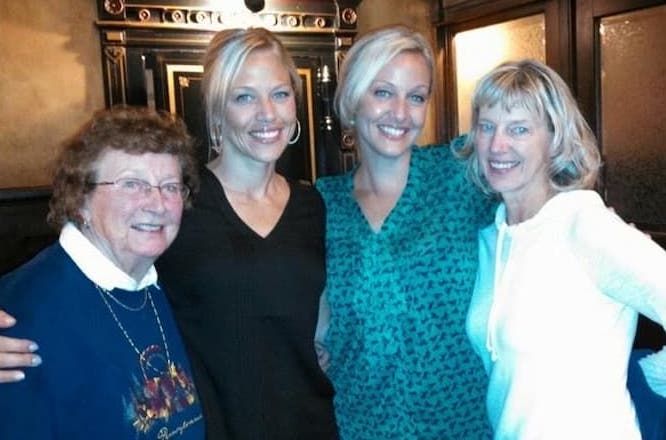
You have three young daughters. How do you achieve work/life balance when managing your roles as both a mom and a CEO building a business?
Not very gracefully at times! Yes, I have three amazing daughters and I wouldn’t change that for anything in the world.
I was told early on, as a mom it’s going to be a challenge forever because your heart is in one place, and your body and mind have to be somewhere else. I try really hard to focus 100% of my attention on what I’m doing at any given time—whether it’s work time or family—so I can be fully present. That’s how I’ve done it.
I think I am who I am because of the wonderful women I’ve had the privilege of having as role models in my life. My mother and grandmothers worked their asses off and were all still attentive, strong, and loving. Having that example growing up makes me feel secure in the time I’m spending away from my kids and that I’m setting a good example for them. They understand that to achieve something you have to work for it, and you have to make sacrifices.
My top priority is being their mom, and I’m going to be there for them 100%. But a very close second is Chamfr and making sure that things are moving in the right direction.
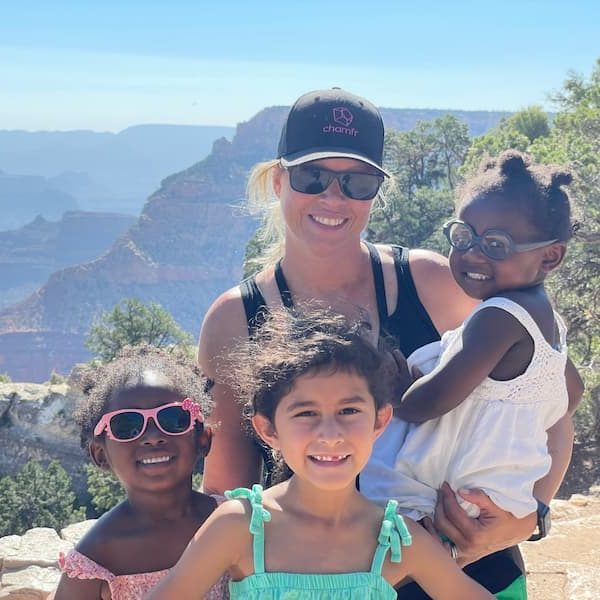
Do you have a story about a time when your work life and family life collided?
All the time! When my youngest daughter was about one and a half, she ran right through the view of my Zoom call buck naked shouting, “Mom! I went potty!”
I think the COVID pandemic was a game-changer. As a woman, I had always felt like I had to hide the obligations I had as a mother. I didn’t want people to think that my role as a mom would interfere with my work, or that I wasn’t 100% focused. But during the pandemic, everybody was working remotely and parents were trying to balance work, childcare, home schooling, and a host of other responsibilities. You began to see the dads being interrupted and having to move toys out of the way. I think it brought us together in a way that wouldn’t have happened without COVID. It made us all a little more human.
What role does volunteerism play in your life? Are there organizations or causes that are important to you?
I’m always looking for organizations that intersect women, healthcare, and non-profit. HERhealthEQ, Resilient Uganda, and the Children’s Hospital Association are organizations I’ve supported over the years and still hold a place in my heart.
Chamfr has started to make donations to select STEAM initiatives and other non-profit organizations that also focus on lifting up girls and women in engineering and other areas of education, growth, and health. As co-founders, we’ve set a goal to become a certified B Corp by our tenth anniversary, ensuring that the foundation we’ve built grows while successfully ensuring that our business is a force for good.
What are some of your hobbies or something you’d like to be able to do more often? What do you do to relax and de-stress?
Family has always been the most important thing in my life and grounds me when my life gets out of balance and I need to re-prioritize.
I absolutely love the outdoors. Fishing is by far one of my favorite hobbies. I love being outside on a boat and the calm of being in nature. I just enjoy the hunt; the game of trying to catch the fish. But I’m more of a catch-and-release person.
Other things I love:
- Kayaking, hiking, and camping
- Running, yoga, tennis, and golf
- Reading and writing
- Food and travel
- Music
- People
I also love Chamfr and believe that what we do every day is making a difference, one engineer and one product at a time.

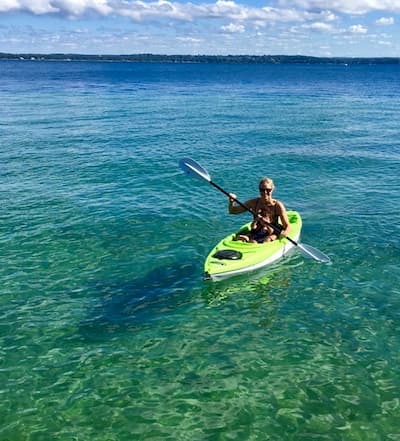
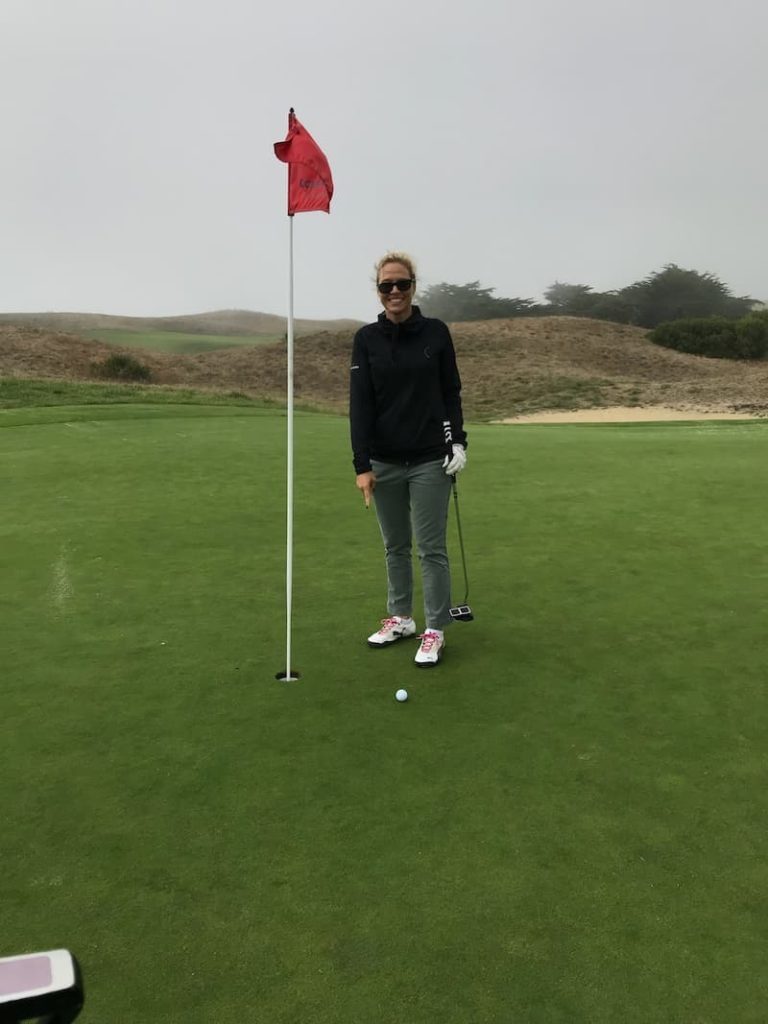
Let’s keep in touch.
Don’t miss seller news, product alerts, and insights. Sign up for our emails to receive updates directly in your inbox.